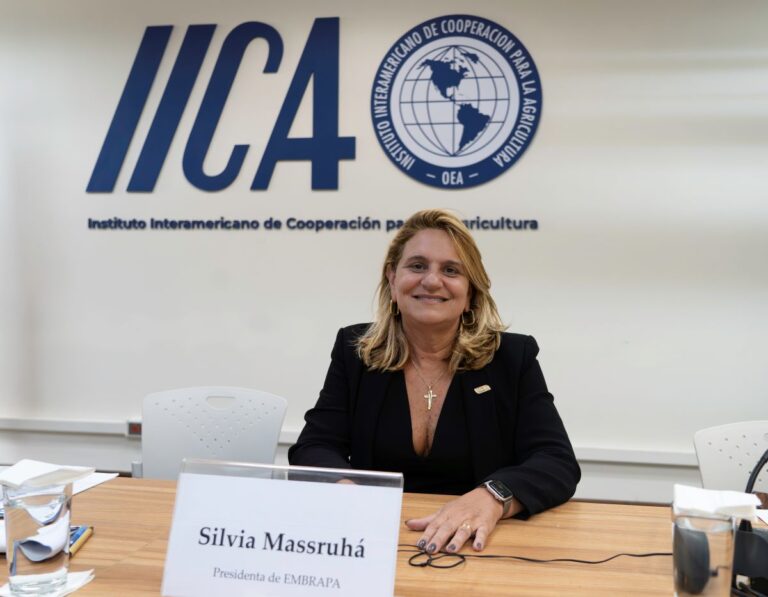During the Caribbean Week of Agriculture, currently underway in Guyana, an agreement to benefit agricultural trade and production was signed by 15 nations in the region.

Georgetown, Guyana, 10 October, 2013 (IICA). The Inter-American Institute for Cooperation on Agriculture (IICA) and the European Union (EU) signed an agreement on October 10 for supporting the development and modernization of the sanitary and phytosanitary measures that are applied in the Caribbean, with a view to improving access to the European markets for agricultural products from this region.
The agreement was signed in Georgetown, capital of Guyana, by the Director-General of IICA, Víctor M. Villalobos, and the Ambassador and Head of Delegation of the European Union, Robert Kopecky, within the framework of the XII Caribbean Week of Agriculture.
Based on this agreement, a program of sanitary and phytosanitary measures that will have a life span of 42 months and a budget of 11.7 million euros (approximately USD 5.8 million) will be implemented. The beneficiary countries are the members of CARIFORUM: Antigua and Barbuda, Bahamas, Barbados, Belize, Dominica, the Dominican Republic, Grenada, Guyana, Haiti, Jamaica, Saint Kitts and Nevis, Saint Lucia, Saint Vincent and the Grenadines, Suriname, and Trinidad and Tobago.
According to the Director-General, “We in IICA are thrilled, not only to be part of this action, but also to have been chosen by the EU to execute it. We offer our technical capacity, our networks of specialists and our presence on the ground in all the countries of the Caribbean”.
Speaking on behalf of the European Union, Robert Kopecky pointed out that “Markets are constantly opening up, and we in the European Union are very keen on partnering with the countries of the Caribbean. Therefore, strengthening the agricultural health of the goods we trade will benefit everyone concerned; and IICA understands this perfectly”.
With the implementation of the program, Caribbean production and trade will be in line with international protocols and standards in agricultural health and environmental protection.
IICA and the European Union will carry out actions aimed at strengthening the legal framework in which sanitary and phytosanitary measures are applied in the Caribbean, at both the national and regional levels. Standards and guidelines with respect to food safety will be also strengthened.
Furthermore, there is a plan to create a network of national and regional institutions that deal with these topics and to develop initiatives for exchange of information and cooperation in matters relating to animal and plant health, in which the authorities, technical committees and international agencies will participate.
The program also intends to strengthen the human resource capabilities, as well as improve the infrastructure of the agricultural health systems in order to increase the application of good agricultural and manufacturing practices, enhance the use of laboratories, carry out risk analyses, and detect possible disease outbreaks in a timely manner.
The agreement signed between IICA and the European Union is part of a joint strategy to support the development of agriculture in the Caribbean and benefit small farmers in particular. The strategy includes another four-year project called the Agriculture Policy Program.
This was designed to strengthen the legal and institutional framework of agricultural research, technology and innovation, as well as access to markets.
IICA is the implementing agency for the programs, in partnership with the CARICOM Secretariat, the Caribbean Agricultural Research and Development Institute (CARDI), the Caribbean Regional Fisheries Mechanism (CRFM) and the Dominican Republic National SPS Committee (CNMSF), among other regional and international agencies.
The budget for the two programs amounts to some 20 million euros (approximately USD 27 million).
Más información:
diego.montenegro@iica.int











